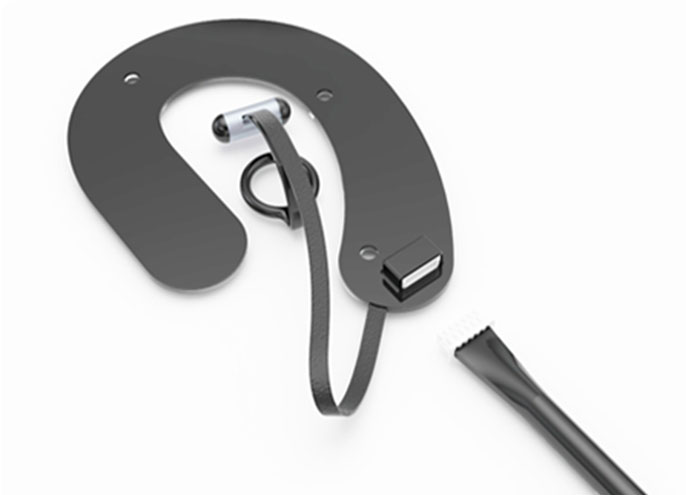
Spark Biomedical, a Texas-based neurostimulation device company developing solutions for opioid withdrawal, announced open patient enrollment in their clinical trial to validate the company’s auricular neurostimulation device for opioid withdrawal. Dubbed Phoenix™, the device delivers mild electrical stimulation to cranial nerve branches for the treatment of symptoms associated with opioid withdrawal.
Read more This Wearable Detects Opioid Overdose and Automatically Calls for Help
Spark is partnering with CARMAhealth a collaborative primary care and psychiatric outpatient practice with a specialty focus on addiction medicine and Recovery Unplugged. Recovery Unplugged is a national addiction treatment organization, and the only substance use care provider to fully integrate music into their rehab programs. Patients with opioid use disorder (OUD) will enroll in the trial at two Recovery Unplugged locations in Austin, Texas, and Lake Worth, Florida, Spark Biomedical said in a press release.
“We’re very excited to partner with Spark on this research. We share common values as innovators in the field, and this device shows promise for people who are dependent on opioids,” said Carlos Tirado, MD, MPH, Chief Medical Officer of CARMAhealth Management. Dr. Tirado is also overseeing the Phoenix clinical study.
According to the U.S Substance Abuse and Mental Health Services Administration, an estimated 10.3 million people are misusing opioid pain relievers and over 800,000 people with heroin use in the past year. Of those, the vast majority who needed substance abuse care do not receive specialty substance use treatment due to the fear of withdrawal.

The prospective, double-blind, randomized control trial aims to demonstrate that the Spark “Phoenix” device can aid in the opioid detoxification process by allowing OUD patients to get through withdrawal safely and comfortably. In early 2019, Spark completed a proof-of-concept study demonstrating that auricular neurostimulation can significantly reduce withdrawal symptoms in active OUD patients, as represented by the Clinical Opiate Withdrawal Scale (COWS).
Read more Wearable Sensor Administers Narcan to Prevent Opioid Overdose Deaths
“We understand the urgent need to provide an alternative, safe, and effective solution to assist OUD patients in taking the first, most challenging step in addiction recovery, overcoming withdrawal. Our goal is to allow patients to comfortably transition through withdrawal to long-term maintenance treatment, such as opioid antagonist medications,” said Dr. Navid Khodaparast, Spark’s Chief Science Officer. “This clinical trial gives Spark the necessary data to judiciously progress through the FDA clearance process and further enables Spark to help combat the opioid epidemic. We look forward to the day that the “Phoenix” solution is available at every point of care for those suffering opioid withdrawal.”
Targeted clinical trial patients include those with current opioid use disorder wanting to undergo withdrawal without the use of opioid-based medication.











